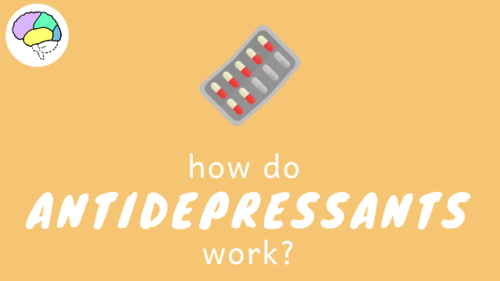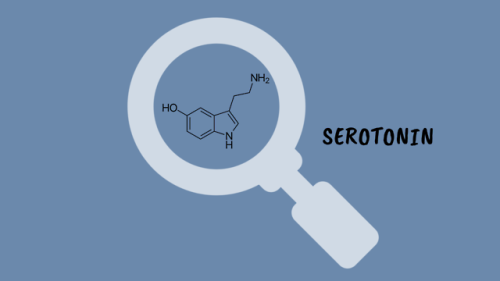WATCH: A Macro Timelapse Highlights The Micro Movements Of Spectacularly Colored Coral [video]
![WATCH: A Macro Timelapse Highlights The Micro Movements Of Spectacularly Colored Coral [video]](https://64.media.tumblr.com/388d126ab9a2d79f43a48c5a471a8b04/tumblr_oe9ygtrlyC1rte5gyo1_500.gif)
![WATCH: A Macro Timelapse Highlights The Micro Movements Of Spectacularly Colored Coral [video]](https://64.media.tumblr.com/77e046f99827b0fc313ab78d09892238/tumblr_oe9ygtrlyC1rte5gyo3_500.gif)
![WATCH: A Macro Timelapse Highlights The Micro Movements Of Spectacularly Colored Coral [video]](https://64.media.tumblr.com/3e50c743bab7ce56ef32f28c9ac9e0d7/tumblr_oe9ygtrlyC1rte5gyo2_500.gif)
![WATCH: A Macro Timelapse Highlights The Micro Movements Of Spectacularly Colored Coral [video]](https://64.media.tumblr.com/787e51d05551b5d9503035887bb0246a/tumblr_oe9ygtrlyC1rte5gyo4_500.gif)
WATCH: A Macro Timelapse Highlights the Micro Movements of Spectacularly Colored Coral [video]
More Posts from Contradictiontonature and Others

Heart Regeneration
If a person suffers a heart attack and survives, chances are their heart muscle will never be quite the same. Indeed, the associated scarring often results in permanent damage that can lead to heart failure and eventual death. Scientists are therefore searching for possible ways to promote regeneration of damaged hearts, and it’s possible that newborn mice may hold the answer. For a few weeks after birth, these animals can almost entirely regenerate their heart tissue after an injury. And new research suggests a key process that may be critical for this regenerative ability: regrowth of nerves. Blocking nerve growth specifically in experimental animals completely prevented the regrowth of damaged heart tissue. In control animals, the nerves regrew into their normal branching patterns—like those pictured. Thus if researchers are to have any hope of regenerating adult hearts after injury, their best bet might be to boost accompanying nerve growth.
Written by Ruth Williams
Image from work by Ian A. White and colleagues
Interdisciplinary Stem Cell Institute, University of Miami Miller School of Medicine, USA
Image copyright held by the American Heart Association
Published in Circulation Research, December 2015
You can also follow BPoD on Twitter and Facebook

This Week in Chemistry: The chemical cause of Russia’s red river, a possible alternative to plastic microbeads in soaps, and more! Links to articles and studies here: https://goo.gl/wPQ5ym

The multiverse might not be madness after all.
Alternate realities, parallel dimensions, and multiple universes. Whatever you call it, the notion of other versions of existence is one of the most popular tropes in science fiction. In some other universe, you’re not reading this sentence but skydiving. In another, you’re nothing but a cockroach. In yet another, not only is life impossible, but atoms don’t even exist.
In recent years, though, such seemingly crazy ideas have shifted from fantasy and speculation toward bona fide science. Even among physicists, the multiverse has gone mainstream.
Theoretically, infinite universes might stretch beyond our own, like endless bubbles in a sea of boiling water. Each bubble has its own laws of physics, and although we may never visit or even see another bubble, some physicists say growing evidence is making the multiverse increasingly plausible—and even probable. Learn more here.

Rosalind Franklin was born #OTD in 1920. Her work was instrumental in the discovery of the structure of DNA: http://wp.me/s4aPLT-franklin
Thyroid function tests

Standard Tests
TSH levels
Free T4 (fT4) levels
Measurements of total T4 + T3 used to be common however detects both bound and free T3 + T4
Elevated total T4 may occur in healthy individuals if there is an increase in binding protein concentrations
Reliable tests now exist for free T4 + T3
T3 = 3.9-6.7 pmol/L
T4 = 12-22 pmol/L
Thyroid-stimulating hormone
Produced by the pituitary gland, not the thyroid, however:
TSH levels are controlled by negative feedback – can be indication of thyroid function (changes in T3+T4 will result in changes in TSH to try compesate)
TSH levels greatly elevated in hypothyroidism – >10 fold increase over reference values
More sensitive marker than decreased fT4 - increased TSH occurs before fT4 decreases
TSH levels greatly supressed in hyperthyroidism
Low concentrations can also occur in non-thyroidal illness
TSH measurement is the first-line test of thyroid function.
Free T4 + T3 Measurements
Desirable as free hormone is clinically relevant
Total levels can change under conditions that alter thyroxine-binding globulin (TBG) levels e.g. pregnancy
Large changes in TBG may still affect fT4 + fT3 levels
fT3 levels often normal in hypothyroidism
fT3 levels usually raised more than fT4 levels in hyperthyroidism
Unless complicated by an illness effecting conversion of T4 to T3
Therefore: – fT4 levels are a better indication of hypothyroidism
fT3 levels are a better indication of hyperthyroidism




How Do Antidepressants Work? (Video)
Your brain is a network of billions of neurones, all somehow connected to each other. At this very second, millions of impulses are being transmitted through these connections carrying information about what you can see and hear, as well as your emotional state. It’s an incredibly complex system but sometimes things go wrong. Despite extensive research, we are still not certain on the biology that underlies mental illnesses- including depression. However, we have come pretty far in developing effective treatments.

It’s time for #TrilobiteTuesday! During their lengthy trek through time, trilobites existed in an almost dizzying array of sizes and shapes. Perhaps no other creature in the entire history of the earth has ever displayed the diversity of design shown by these singularly distinctive arthropods. But at their heart (and yes, trilobites apparently did possess primitive but effective cardio-respiratory systems), they were all remarkably similar. Named not, as is generally surmised, for their three main body segments – cephalon (head), thorax (body) and pygidium (tail) – but rather for the three lobes that longitudinally divided their dorsal exoskeleton. Whether they were Cambrian Olenellids – such as this Olenellus romensis from Alabama – or Devonian Phacopids, most trilobites presented a fundamentally analogous body design. Such characteristics as occipital lobes, anterior margins and facial sutures (which allowed early trilobites to shed their molting shell), were shared by the majority of trilobite species, as were such exotic-sounding features as axial rings, articulating facets and pleural spines.

Network Lost
If you believe the theory of six degrees of separation, we’re all connected to each other (and possibly to Kevin Bacon) by common friends and friend-of-friends. It might feel like a small world – in fact, these patterns crops up in all sorts of places. Small world networks connect distant brain cells, and help these lymph nodes (outlined in grey) fight infections. A network of fibroblastic reticular cells (FRCs, red) spreads out inside each node, producing chemicals (green) to support immune cells while they zip around the node gathering antigens – chemical information used to target bacteria. These mouse lymph nodes are treated with different doses of a toxin that destroys FRC networks. A high dose crumples the lymph node in the bottom right. Amazingly, many of these networks repair themselves, showing just how committed immune defences are to keeping their small worlds alive.
Written by John Ankers
Image from work by Mario Novkovic, Lucas Onder and Jovana Cupovic, and colleagues
Institute of Immunobiology, Kantonsspital St. Gallen, St. Gallen, Switzerland
Image originally published under a Creative Commons Licence (BY 4.0)
Published in PLOS Biology, July 2016
You can also follow BPoD on Twitter and Facebook

This Week in Chemistry: Preventing marble statue weathering, further progress towards hydrogen fusion, and more! Links: http://goo.gl/WeJRV5
-
 whyshedisappeared liked this · 1 month ago
whyshedisappeared liked this · 1 month ago -
 metamoraacademy reblogged this · 1 month ago
metamoraacademy reblogged this · 1 month ago -
 squidaresquishy liked this · 3 months ago
squidaresquishy liked this · 3 months ago -
 pizza-kity reblogged this · 3 months ago
pizza-kity reblogged this · 3 months ago -
 pizza-kity liked this · 3 months ago
pizza-kity liked this · 3 months ago -
 sevenfragmence liked this · 3 months ago
sevenfragmence liked this · 3 months ago -
 dandelionbi liked this · 3 months ago
dandelionbi liked this · 3 months ago -
 ohlittledarling reblogged this · 3 months ago
ohlittledarling reblogged this · 3 months ago -
 ohlittledarling liked this · 3 months ago
ohlittledarling liked this · 3 months ago -
 oarfjsh reblogged this · 3 months ago
oarfjsh reblogged this · 3 months ago -
 itriedtoescape liked this · 3 months ago
itriedtoescape liked this · 3 months ago -
 chryso-poeia liked this · 3 months ago
chryso-poeia liked this · 3 months ago -
 amerikhaana reblogged this · 10 months ago
amerikhaana reblogged this · 10 months ago -
 hrh-spinach liked this · 10 months ago
hrh-spinach liked this · 10 months ago -
 workator reblogged this · 11 months ago
workator reblogged this · 11 months ago -
 uniquecrash5 liked this · 11 months ago
uniquecrash5 liked this · 11 months ago -
 rockyhamster reblogged this · 11 months ago
rockyhamster reblogged this · 11 months ago -
 rockyhamster liked this · 11 months ago
rockyhamster liked this · 11 months ago -
 nnoitragilga reblogged this · 1 year ago
nnoitragilga reblogged this · 1 year ago -
 matrinki liked this · 1 year ago
matrinki liked this · 1 year ago -
 imogen-mangle reblogged this · 1 year ago
imogen-mangle reblogged this · 1 year ago -
 generalkuwagattan reblogged this · 1 year ago
generalkuwagattan reblogged this · 1 year ago -
 generalkuwagattan liked this · 1 year ago
generalkuwagattan liked this · 1 year ago -
 celestriakle reblogged this · 1 year ago
celestriakle reblogged this · 1 year ago -
 robotblues liked this · 1 year ago
robotblues liked this · 1 year ago -
 entomologize-nonbug reblogged this · 1 year ago
entomologize-nonbug reblogged this · 1 year ago -
 entomologize liked this · 1 year ago
entomologize liked this · 1 year ago -
 jay-ofalltrades liked this · 1 year ago
jay-ofalltrades liked this · 1 year ago -
 the-fool-darkane85 reblogged this · 1 year ago
the-fool-darkane85 reblogged this · 1 year ago -
 the-fool-darkane85 liked this · 1 year ago
the-fool-darkane85 liked this · 1 year ago -
 nubtowerle liked this · 1 year ago
nubtowerle liked this · 1 year ago -
 muck-raker liked this · 1 year ago
muck-raker liked this · 1 year ago -
 safein-yourskin liked this · 2 years ago
safein-yourskin liked this · 2 years ago -
 sadgirlglimmeringdarling reblogged this · 2 years ago
sadgirlglimmeringdarling reblogged this · 2 years ago -
 oh-nostalgiaa liked this · 3 years ago
oh-nostalgiaa liked this · 3 years ago -
 the-strongest-stars reblogged this · 3 years ago
the-strongest-stars reblogged this · 3 years ago -
 cuquas reblogged this · 3 years ago
cuquas reblogged this · 3 years ago -
 profanities-of-common-sense reblogged this · 3 years ago
profanities-of-common-sense reblogged this · 3 years ago -
 xherovertherex liked this · 3 years ago
xherovertherex liked this · 3 years ago -
 the-strongest-stars liked this · 3 years ago
the-strongest-stars liked this · 3 years ago -
 ccprovolomies liked this · 3 years ago
ccprovolomies liked this · 3 years ago -
 letstrysomefanfic liked this · 3 years ago
letstrysomefanfic liked this · 3 years ago -
 youralienarms liked this · 3 years ago
youralienarms liked this · 3 years ago
A pharmacist and a little science sideblog. "Knowledge belongs to humanity, and is the torch which illuminates the world." - Louis Pasteur
215 posts


